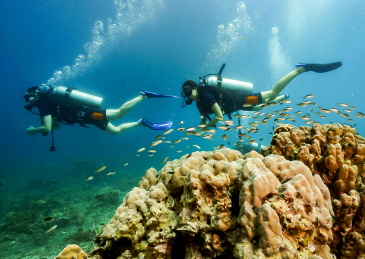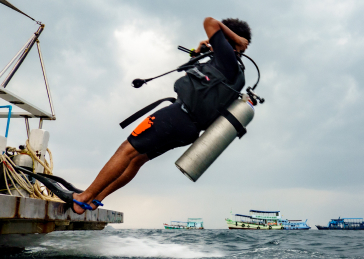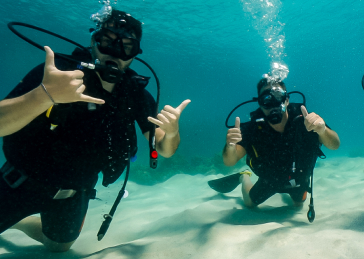Modified 9th June 2025
Advantages of Deep Dive Certification for Divemasters: Complete Professional Guide
Understanding the advantages of deep dive certification for divemasters is crucial for any diving professional looking to advance their career and expand their expertise. This specialized certification opens doors to deeper waters, unique marine encounters, and significantly enhanced earning potential while establishing you as an authority in advanced diving operations.
Deep dive certification represents more than just another qualification—it’s a career-defining achievement that sets exceptional divemasters apart from their peers and positions them for leadership roles in the most prestigious diving operations worldwide. For those considering becoming a divemaster, this certification offers a clear path to professional distinction.
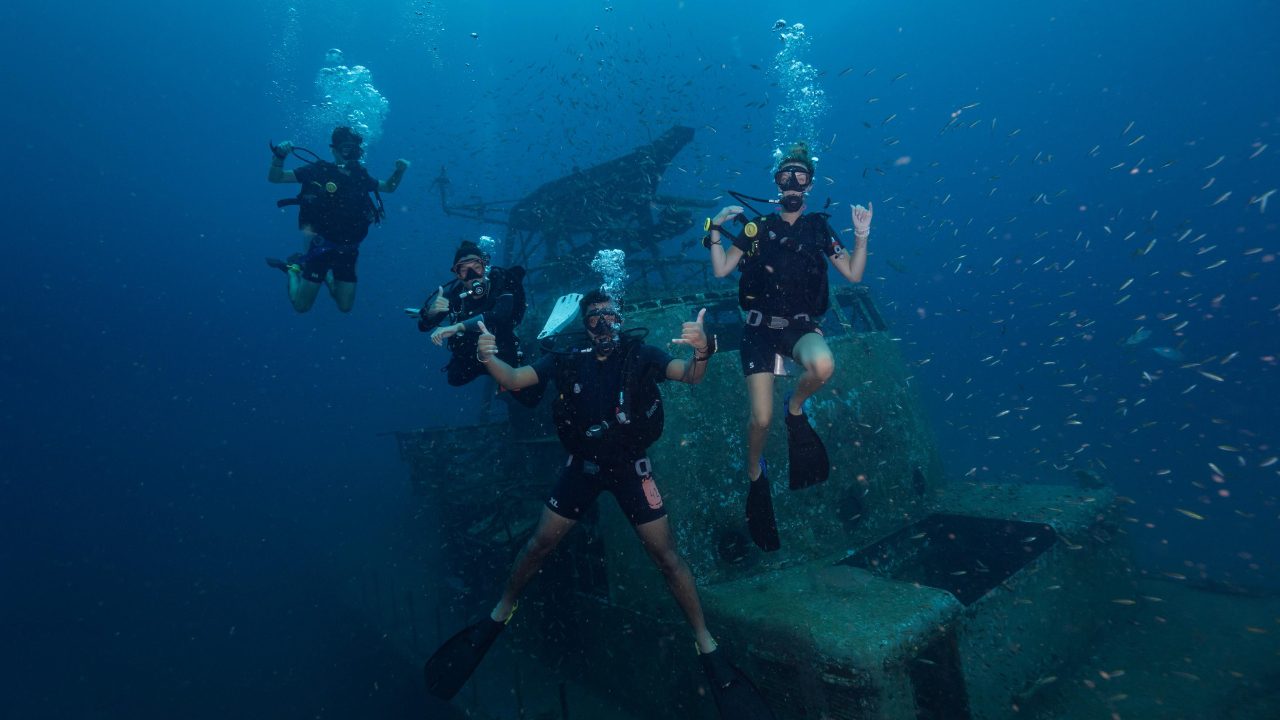
Enhanced Employment Opportunities and Career Advancement
The primary advantages of deep dive certification for divemasters center around dramatically expanded career opportunities. With this certification, divemasters gain access to specialized positions that command higher salaries and offer greater job security in competitive markets. Understanding divemaster training costs helps professionals budget for this valuable career investment.
Mastery of Deep Diving Physiology and Safety
Among the most critical advantages of deep dive certification for divemasters is comprehensive training in advanced diving physiology and safety protocols. This knowledge not only ensures safer diving operations but also builds confidence in handling complex underwater situations.
Depth Capabilities and Challenges
- Advanced air consumption calculations and emergency gas planning
- Nitrogen narcosis recognition and management techniques
- Emergency decompression procedures and safety stop protocols
- Redundant air system deployment and emergency ascent procedures
- Deep dive communication methods and emergency signaling
- Advanced buddy check procedures for technical equipment
Access to Unique Marine Environments
One of the most exciting advantages of deep dive certification for divemasters is access to pristine marine environments that remain largely unexplored by recreational divers. These deeper waters offer encounters with rare marine life and undisturbed ecosystems. Koh Tao’s diverse marine life becomes even more spectacular at depth, where unique species thrive in cooler, less disturbed waters.
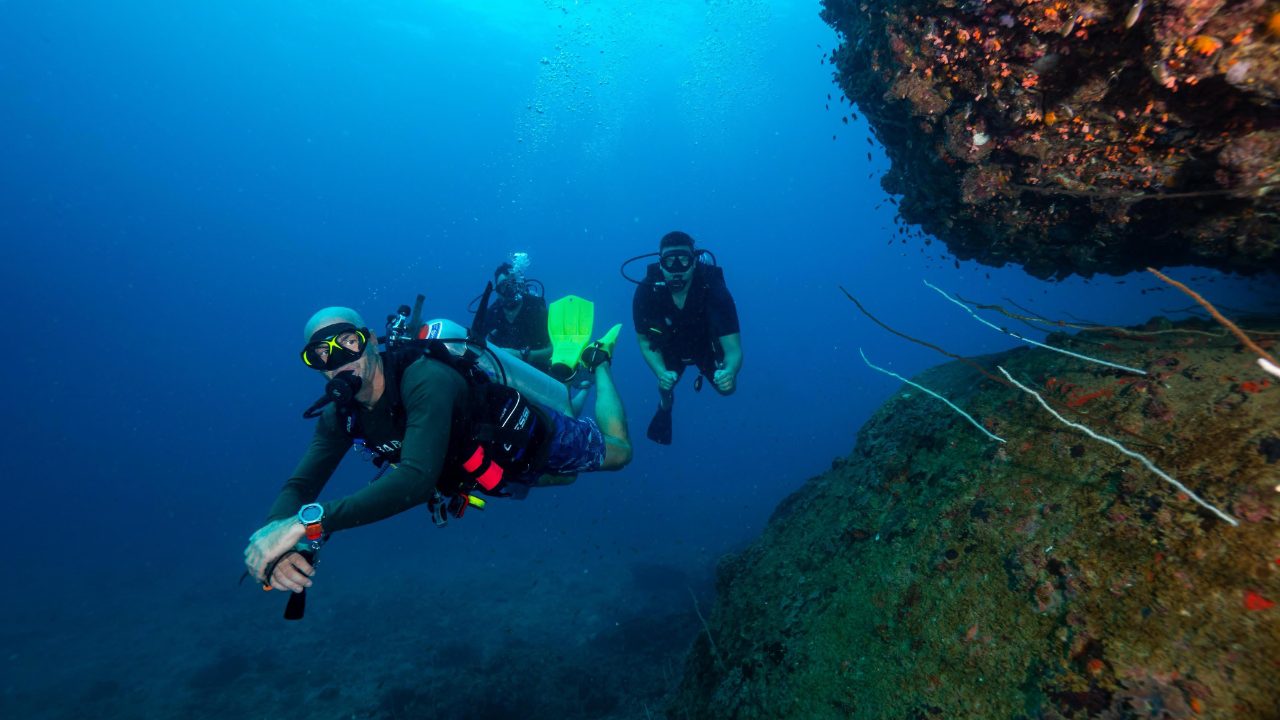
Deep Water Marine Encounters
Species rarely seen in shallow waters, including grey reef sharks and occasional pelagic visitors found around Koh Tao’s premier dive sites.
Unique species adapted to deeper waters with specialized behaviors and feeding patterns.
Vibrant coral formations untouched by surface bleaching and human impact, supporting marine conservation efforts.
Deep shipwrecks that have become artificial reefs teeming with marine life.
Professional Development and Industry Recognition
The advantages of deep dive certification for divemasters extend far beyond technical skills, encompassing significant professional development opportunities and industry recognition that enhance long-term career prospects. For experienced professionals, this certification can open doors to exciting liveaboard opportunities where deep diving skills are highly valued.
Certification Requirements and Prerequisites
Deep Dive Certification Prerequisites
Managing Nitrogen Narcosis and Emergency Situations
Understanding and managing nitrogen narcosis represents one of the most valuable advantages of deep dive certification for divemasters. This training provides essential skills for maintaining safety and clear judgment at depth while effectively managing group dynamics under challenging conditions. Knowledge of marine biology also enhances a divemaster’s ability to provide educational value during deep dives.
Nitrogen narcosis affects divers differently, but typically becomes noticeable around 30 meters depth. Certified deep diving divemasters learn to recognize early signs, implement mitigation strategies, and guide their groups safely through potentially impairing conditions.
- Early Recognition: Identifying subtle changes in behavior, decision-making, and motor skills in divers experiencing narcosis
- Prevention Strategies: Proper dive planning, gradual descent protocols, and maintaining awareness of group dynamics
- Management Techniques: Controlled ascent procedures, clear communication methods, and emergency response protocols
- Recovery Procedures: Safe ascent to clearer thinking depths and post-dive assessment techniques
Ready to unlock the advantages of deep dive certification for divemasters? Enhance your professional journey with our comprehensive Deep Diver course, the perfect stepping stone toward higher emplyability.
- 4 specialized deep dives
- Professional instruction from experienced divemasters
- Advanced safety training and emergency protocols
- Access to Koh Tao’s premier deep dive sites
- Foundation for professional diving career advancement
- Small group sizes for personalized attention
RAID Deep 40 Course: ฿7,500
4 morning dives over 3 days | Deep diving theory
Build the foundation for deep dive certification with Thailand’s most trusted diving professionals. Plan your journey to Koh Tao and discover why timing your visit can enhance your training experience.
Preguntas frecuentes
Bucea con LBD: tu puerta a la exploración submarina
Tanto si eres un principiante curioso como un profesional experimentado, nuestra escuela es tu portal a las maravillas del submarinismo. Únete a nosotros en el mundo bajo las olas.
¿LISTO PARA EMPEZAR?
Consulta nuestros cursos de buceo en Koh Tao
